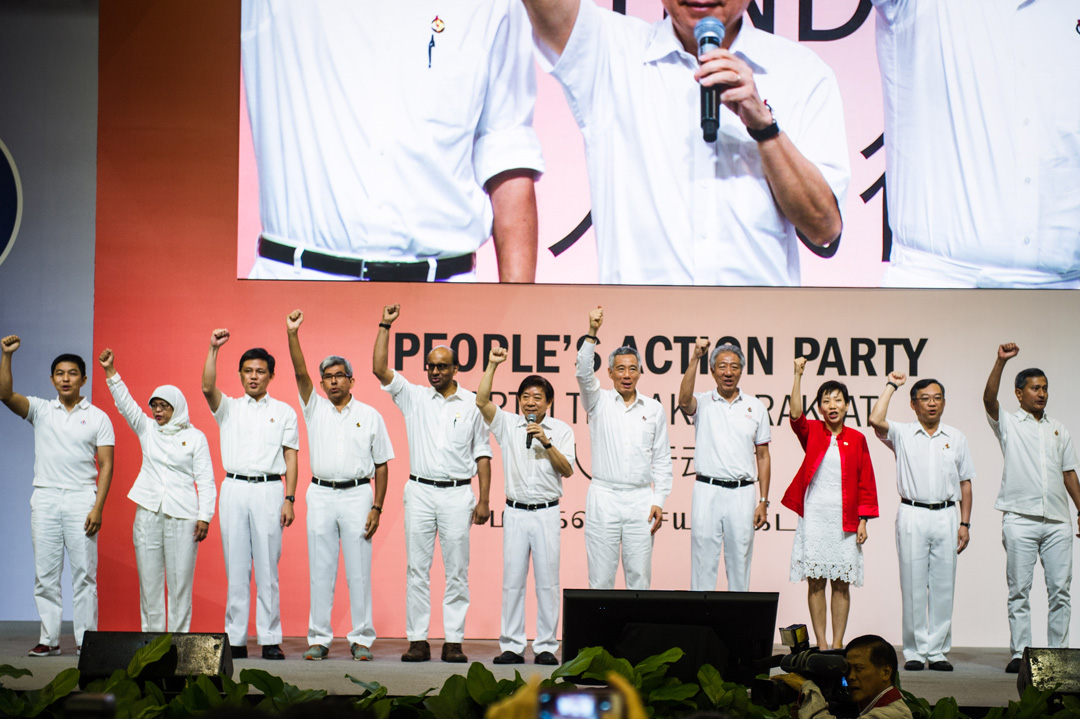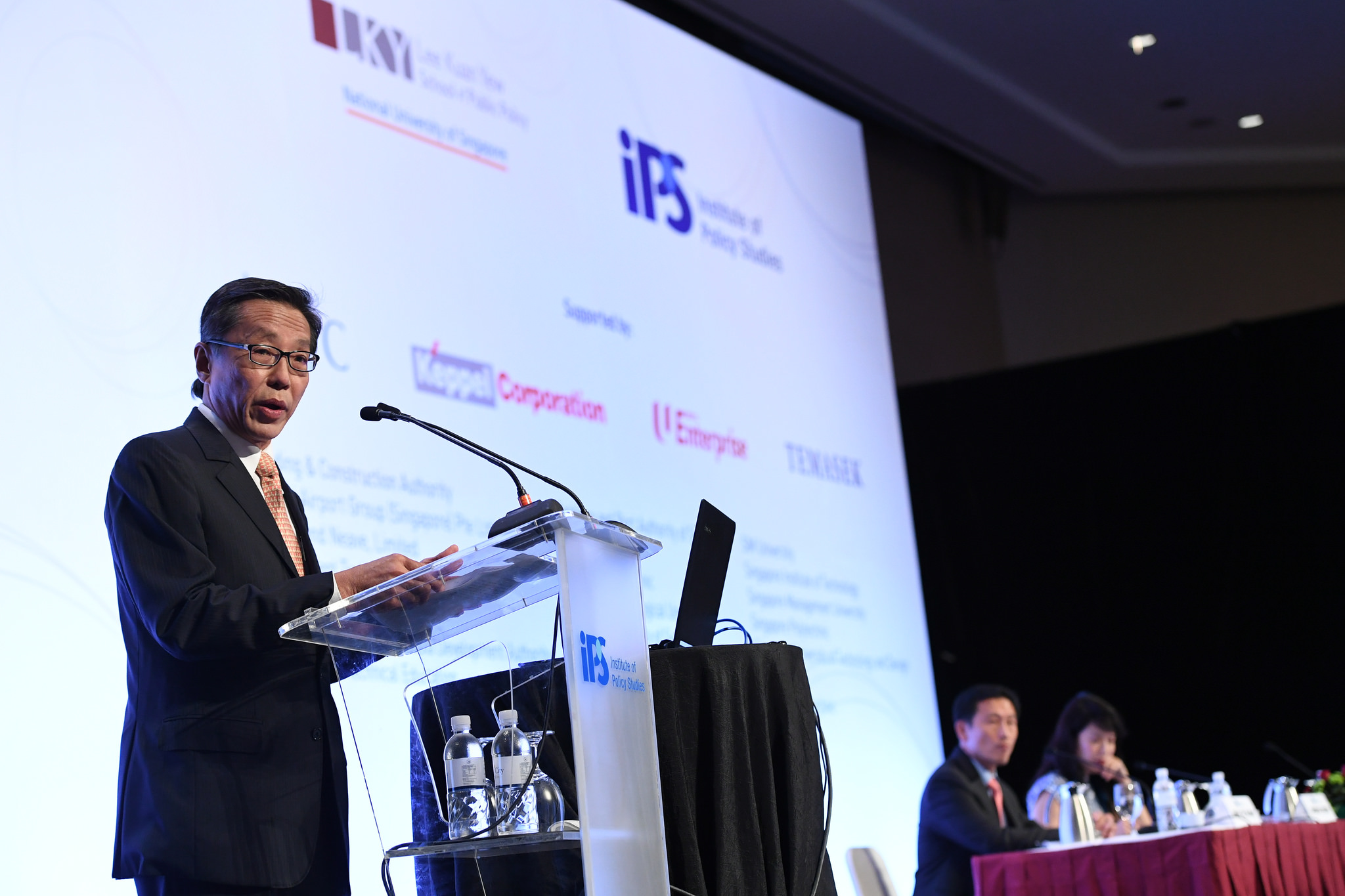"What if one-party dominance is broken, the People's Action Party (PAP) loses in a general election and another government comes to power?"
This was the big question that public intellectual Ho Kwon Ping sought to answer when he spoke at the Institute of Policy Studies' (IPS) annual Singapore Perspectives conference on the same panel as Education Minister (Higher Education and Skills) Ong Ye Kung on Jan 23.
The 65-year-old former journalist and political detainee turned business tycoon had made a somewhat similar speech in October 2014.
In his latest speech, Ho ventured to ask further questions on the possible scenarios and chances of the PAP losing power and alternative political models.
Described by Ambassador-at-Large Professor Tommy Koh at the forum as a "brilliant, eloquent, super wealthy and politically independent" personality, who "will make an excellent candidate for the Elected Presidency" when he is "a bit older", Ho made some interesting points that are worth noting.
Here are three things we learned from his 15-minute speech and responses to questions from the floor:
1. As long as PM Lee is still in politics, the PAP is unlikely to lose any elections.
On the longevity of the PAP's reign rule, Ho commented that the ruling party is unlikely to lose an election when PM Lee is still around "in whatever incarnations" (for example Minister Mentor or Senior Minister), as he will remain the torchbearer of the party's values and political culture.
"Who is going to be the bearer of the torch, of values of the party? Who is going to be the one to say 'this must stop in terms of squabbling', that 'we cannot have that'? If you look at history, what has destroyed all founding parties, are not just the competencies of their policies, but the internal deterioration of their own political culture. I do not think that will happen so long that Mr Lee is around, because he has inherited all those values. It is in his DNA.
I think the critical issue is what will happen 20, 30 years from now. And I do believe that the PAP has probably the best chance of any long-term political parties to possibly set a new record (for staying in power). Now as to whether it can forever stay in power, I doubt that anything is forever."
(As one of the most durable one-party regimes, the PAP has ruled Singapore for nearly 60 years since 1959. One other example is the Communist Party of China, which has been in power for 68 years.)
2. The PAP should institutionalise internal competition (a.k.a. ownself check ownself).
Perhaps, Ho posits, Singapore's best hope for an opposition may come from a split in the PAP.
We're paraphrasing, but he alluded to "a most desirable scenario" in which institutionalised internal party competition can be "an innovative and sustainable way" to prevent complacency and a sense of entitlement from setting in.
"What I would like to see as the most desirable scenario is a system whereby we have a robust internal institutionalised competition in the PAP, and then it either becomes sustainable because PAP through this internal competition is robust, or failing which the PAP splits into two, because of the creation of two very coherent or more strands of thinking within the PAP.
If the PAP can contain the different tendencies of thinking within itself, it would go on as a one-party dominant system for a long time. If it doesn't, at least we then have the advantage of a break-up within a party, where two different parties have leaders who probably have considerable time in governance and in thinking through the issues of governance. Such a solution allows the flexibility for us to remain one-party dominant or to break into a two-party system."
Ho advocated a specific form of intra-party competition — not just for leadership roles, but between groups in the party which represent different philosophical or policy tendencies, and "beyond just secret elections to a central committee or politburo."
 Source: PAP
Source: PAP
The ruling People's Action Party (PAP) holds its Central Executive Committee (CEC) elections every two years.
Only party cadres are allowed to vote for members that make up the party's highest decision-making body in a closed-door exercise. Vote counts are not disclosed and members who were not voted into the CEC can be co-opted at a later stage. The total number of cadres the party has is unknown.
At the CEC elections last December, 14 PAP leaders were voted into the CEC and 6 were co-pted, including Ong Ye Kung, who was co-pted earlier this month. He was also appointed as the party's third Organising Secretary.
3. The PAP should view election losses as an okay situation.
Ho did not view electoral loss as an entirely bad thing for a ruling political party. Instead he saw such setbacks as chances to break from the past and push for positive generational change internally.
"Very often when a ruling party loses a political election, the entire leadership which generally is quite old, moribund and intellectually feeble by then will be driven from power internally. Then you will have young turks within the party who would come. The whole infusion of fresh blood, which generally result in that previous ruling party coming back in power again.
Of course, there have been cases that the demise of a ruling political party has led to long term irrelevance. But very often, a loss reinvigorates a ruling political party that had lost its way and that's sometimes not necessarily an unfortunate consequence, it allows the reform of a party from within."
Given the current robustness of the PAP and the challenges faced by opposition parties, political changes in Singapore are likely to be gradual and incremental at best, especially in the coming years.
Yet, it's certainly still useful to think through what Ho said, and imagine a future where anything is possible.
Top photo courtesy of the Institute of Policy Studies, NUS
Related articles:
Minister Ong Ye Kung asked at IPS conference: ‘What if S’pore becomes a 2 or multi-party system?
Lawyer-poet’s bold speech about arts in S’pore triggers tender exchange between her & Prof Tommy Koh
If you like what you read, follow us on Facebook and Twitter to get the latest updates.
If you like what you read, follow us on Facebook, Instagram, Twitter and Telegram to get the latest updates.
